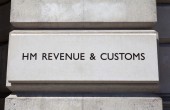How can a contractor be a winner in the tax race
Article Author: Cogent Accountants Posted on: October 24, 2016 (Full Author Bio in the box on the right side) 2767 views
2767 views

Changes in Travel and Subsistence Expenses and Dividend Tax have hit Contractors and Freelancers hard.
Victor Korman, Managing Director, Cogent Accountants was featured in a article, looking at how the dividend tax rise will affect small businesses.
Victor’s advice to Contractors and Freelancers who want to be a winner in the tax race is to form a limited company and to reduce your tax liability by: “…ensuring all shareholders in the company are using the new non-taxable £5,000 dividend tax allowance; paying employer pension contributions from the company instead of personal pension contributions; taking dividends at a level so that the high income child benefit charge is minimised; not paying all profits as dividend but retaining profits in the company so that dividends can be paid in a more tax effective time.”
So what do you need to consider when forming a limited company?
When to form a limited company
A limited company can be formed anytime during the year. If you have been working through an Umbrella company and want to switch to working through a limited company, the best time is to do it between contracts (but it can be done at anytime throughout the year). Don’t leave it until the last minute, get it all sorted before your new contract starts so that everything is in place.
Why form a limited company
By forming a limited company you are reducing your personal risk if your business fails and it is the most tax efficient way for Contractors or Freelancers to operate.
How to form a limited company
Forming a limited company is a quick and pain free process. You need to register (incorporate) your company through Companies House, or we can handle this for you.
Every company needs a company name. You can either buy a ready-made company name or produce your own. Choosing your own company name means completing more paperwork, but you can choose something that represents who you are or what you do.
Secondly, you must open a business bank account. Monies held by the limited company belong to the company and not you personally and such must be held in a separate business account.
The majority of high street banks offer a business account service. Do your homework and choose the one that best suits your business needs.
Thirdly, appoint a good accountant. Again, there are plenty of us out there but not all are as experienced in the Contractor or Freelancer market as we are. The UK system is very complex and you need to use a company who has knowledge in this area so you are as tax efficient as possible.
What is a company director and what are their responsibilities
Every limited company must appoint a company director (generally this is you). A company director is responsible for making sure the company is run properly and tries to ensure the company makes a profit. A directorship also comes with certain responsibilities as stated on the .GOV website:
1. Keep company records and report changes to Companies House and HMRC
2. Make sure the company’s accounts are a true and fair view of the business’ finances
3. File your accounts with Companies House and your Company Tax return with HMRC
4. Pay Corporation Tax
5. Register for Self-Assessment and send a personal Self-Assessment tax return every year (unless it’s a non-profit organisation and you didn’t get any pay or benefits)
It may sound like a lot of work and responsibility but your accountant will handle most of this for you.
Latest Posts
-

Staying HMRC Compliant: VAT Returns Have Chan...
by Amanda Swales on January 29, 2020 Accounting & Tax -

Self Assessment Tax Return 101 - Filling In T...
by Amanda Swales on January 15, 2020 Accounting & Tax -

-



 Barclays and Citigroup are the latest to cut IT Contractor pay
Barclays and Citigroup are the latest to cut IT Contractor pay  RTI offers annual option for contractors
RTI offers annual option for contractors  The rise of the female contractor
The rise of the female contractor  IR35 IT Contractors And Office Holders
IR35 IT Contractors And Office Holders  Simple guide to Tax relief on Motor expenses and business mileage
Simple guide to Tax relief on Motor expenses and business mileage  Understanding tax basics - a guide for contractors
Understanding tax basics - a guide for contractors  What forms do I need to submit In my tax return?
What forms do I need to submit In my tax return?  Why compliance has lost its meaning for contractors
Why compliance has lost its meaning for contractors  Is it time to break up with your Accountant
Is it time to break up with your Accountant  Fun ways to save money for the adventurous contractor
Fun ways to save money for the adventurous contractor  What is the 24 month rule and how does it apply to Contractors
What is the 24 month rule and how does it apply to Contractors  UK plc confused about T&S regulations says FCSA research
UK plc confused about T&S regulations says FCSA research  Parents working full time file petition for free childcare
Parents working full time file petition for free childcare  Top 10 cash flow tips for IT Contractors
Top 10 cash flow tips for IT Contractors  Beginners Guide to IT Contracting
Beginners Guide to IT Contracting  The top 3 common mistakes Contractors make
The top 3 common mistakes Contractors make  Personal Service Company Guide for UK Contractors
Personal Service Company Guide for UK Contractors  What a Directors loan means and who can take one
What a Directors loan means and who can take one  The 10 commandments of contracting
The 10 commandments of contracting  How IR35 reforms in the private sector going to affect the self-employed?
How IR35 reforms in the private sector going to affect the self-employed?  Contractor paid 2500 GBP to HMRC for tax return mess up
Contractor paid 2500 GBP to HMRC for tax return mess up  How Important is IR35 and Tax Planning to Contractor Accountants
How Important is IR35 and Tax Planning to Contractor Accountants  How much salary should I pay myself as a Limited Company Contractor
How much salary should I pay myself as a Limited Company Contractor  Why Contractors MUST Download TeraCopy Freeware
Why Contractors MUST Download TeraCopy Freeware  Sole Enterprise with Protected Assets or Limited Company - Which is better for Contractors?
Sole Enterprise with Protected Assets or Limited Company - Which is better for Contractors?  Festive Gift Ideas for Limited Company Directors
Festive Gift Ideas for Limited Company Directors  MP David Morris calls for new IR35 legislation for Contractors
MP David Morris calls for new IR35 legislation for Contractors  How HMRC continue to confuse matters for Contractors and Agencies
How HMRC continue to confuse matters for Contractors and Agencies  Insulting to Contractors
Insulting to Contractors  Why Brexit will not be an easy exit
Why Brexit will not be an easy exit  Intermediaries' legislation - IR35: What is the likely impact of the new rules for contractors working in the public sector?
Intermediaries' legislation - IR35: What is the likely impact of the new rules for contractors working in the public sector?  What is Required For Your First Digital VAT Return: Making Tax Digital
What is Required For Your First Digital VAT Return: Making Tax Digital  Chancellor announced dividend tax hike from April 2016
Chancellor announced dividend tax hike from April 2016  6 free tools all contractors should use
6 free tools all contractors should use  How to avoid time between contracts
How to avoid time between contracts  The Taxman is going to war on UK Contractors
The Taxman is going to war on UK Contractors  Autumn Statement 2016 - How will the VAT Flat Rate Scheme Restriction Affect Contractors?
Autumn Statement 2016 - How will the VAT Flat Rate Scheme Restriction Affect Contractors?  Why Contractors should save for a rainy day
Why Contractors should save for a rainy day  5 New Contractor Mortgages Friendly Lenders Enter The Market
5 New Contractor Mortgages Friendly Lenders Enter The Market  First Time Buyers get cashback on Contractor Mortgages
First Time Buyers get cashback on Contractor Mortgages  FCSA submits its official response to the HMRC consultation
FCSA submits its official response to the HMRC consultation  APSCo backs call for strategic review which could end raw deal for contractors
APSCo backs call for strategic review which could end raw deal for contractors  FCSA calls for HMRC to abandon its consultation on public sector use of off payroll staff
FCSA calls for HMRC to abandon its consultation on public sector use of off payroll staff  Do I Need To Complete The Self Assessment? How To Know If You Have A Tax Return Due
Do I Need To Complete The Self Assessment? How To Know If You Have A Tax Return Due  How the 2015 Budget could affect you as an Independent Contractor
How the 2015 Budget could affect you as an Independent Contractor  Registrar of Companies Scam Letter sent to Businesses
Registrar of Companies Scam Letter sent to Businesses  10 Must Have iOS Apps for UK Contractors
10 Must Have iOS Apps for UK Contractors  What all recruiters need to know
What all recruiters need to know  Why Contractors Need To Understand IR35
Why Contractors Need To Understand IR35  Is there light at the end of the tunnel for UK Contractors
Is there light at the end of the tunnel for UK Contractors  General Elections from the Tax perspective for UK Contractors
General Elections from the Tax perspective for UK Contractors  How will Autumn statement affect Contractors?
How will Autumn statement affect Contractors?  Umbrella Company and IR35
Umbrella Company and IR35  Budget is good for small business but still hurts contractors
Budget is good for small business but still hurts contractors  Why it is important for Contractors to network effectively
Why it is important for Contractors to network effectively  Professional Indemnity Insurance Explained
Professional Indemnity Insurance Explained  The golden rule of Contracting
The golden rule of Contracting  HMRC Employment Status Service tool - How accurate is it in determining the IR35 risk for contractors?
HMRC Employment Status Service tool - How accurate is it in determining the IR35 risk for contractors?  How can a contractor be a winner in the tax race
How can a contractor be a winner in the tax race  How important is it to protect your income as a contractor
How important is it to protect your income as a contractor  Where is your IT contracting career going
Where is your IT contracting career going  What does change in dividends mean to UK Contractors
What does change in dividends mean to UK Contractors  A checklist and timeline for new Contractors
A checklist and timeline for new Contractors  Relieve the stresses of Limited Company contracting with 4 simple solutions
Relieve the stresses of Limited Company contracting with 4 simple solutions  First Time Buyers take advantage of the new Help to Buy ISA
First Time Buyers take advantage of the new Help to Buy ISA  HMRC admits contractor tax change legislation needs a rewrite
HMRC admits contractor tax change legislation needs a rewrite  Benefits for Freelance Contractor Mortgages Insurance
Benefits for Freelance Contractor Mortgages Insurance  Will the low rates mortgage price war benefit UK Contractors?
Will the low rates mortgage price war benefit UK Contractors?  How will Supervision Direction or Control rules affect Contractors
How will Supervision Direction or Control rules affect Contractors  Is Umbrella Company the best solution for first-time Contractors?
Is Umbrella Company the best solution for first-time Contractors?  Election 2015 - what is in it for contractors and freelancers
Election 2015 - what is in it for contractors and freelancers  Why Contractors should never stop learning
Why Contractors should never stop learning  How will the new tax year affect IT Contractors and Umbrella Companies
How will the new tax year affect IT Contractors and Umbrella Companies  Is contracting the key to a successful and family-friendly career
Is contracting the key to a successful and family-friendly career  What can Limited Company contractors expect from the Budget 2017?
What can Limited Company contractors expect from the Budget 2017?  Great Chance to Win a Trip to Monaco for IT Contractors
Great Chance to Win a Trip to Monaco for IT Contractors  FCSA urges Osborne to get his facts right before tarnishing all contractors
FCSA urges Osborne to get his facts right before tarnishing all contractors  Changes to the Flat Rate VAT Scheme are coming - are YOU ready?
Changes to the Flat Rate VAT Scheme are coming - are YOU ready?  How does the recent IR35 changes in the public sector affect UK contractors?
How does the recent IR35 changes in the public sector affect UK contractors?  5 benefits of contracting through an umbrella company
5 benefits of contracting through an umbrella company  Amendments in Finance Bill to prevent misuse of Personal Service Companies
Amendments in Finance Bill to prevent misuse of Personal Service Companies  How IT Contractors can become an expenses wizard
How IT Contractors can become an expenses wizard  Doubt is cast on HMRC new IR35 proposals for contractors
Doubt is cast on HMRC new IR35 proposals for contractors  Why Contractors should set up a home office
Why Contractors should set up a home office  RIP Business Entity Tests
RIP Business Entity Tests  Top 5 things a first-time Contractor should do when switching to Contracting
Top 5 things a first-time Contractor should do when switching to Contracting  5 Trusted Contractor Services Providers in the UK
5 Trusted Contractor Services Providers in the UK  Why Contractors in trust based schemes should think twice
Why Contractors in trust based schemes should think twice  How to deal with unplanned time off for UK Contractors
How to deal with unplanned time off for UK Contractors  What is Contractor Mortgages and how to secure the best mortgage deal?
What is Contractor Mortgages and how to secure the best mortgage deal?  The true value of umbrella companies for UK contractors
The true value of umbrella companies for UK contractors  The future of IR35 in the public and private sectors
The future of IR35 in the public and private sectors  Contractors feel puzzled of the UK job market
Contractors feel puzzled of the UK job market 

